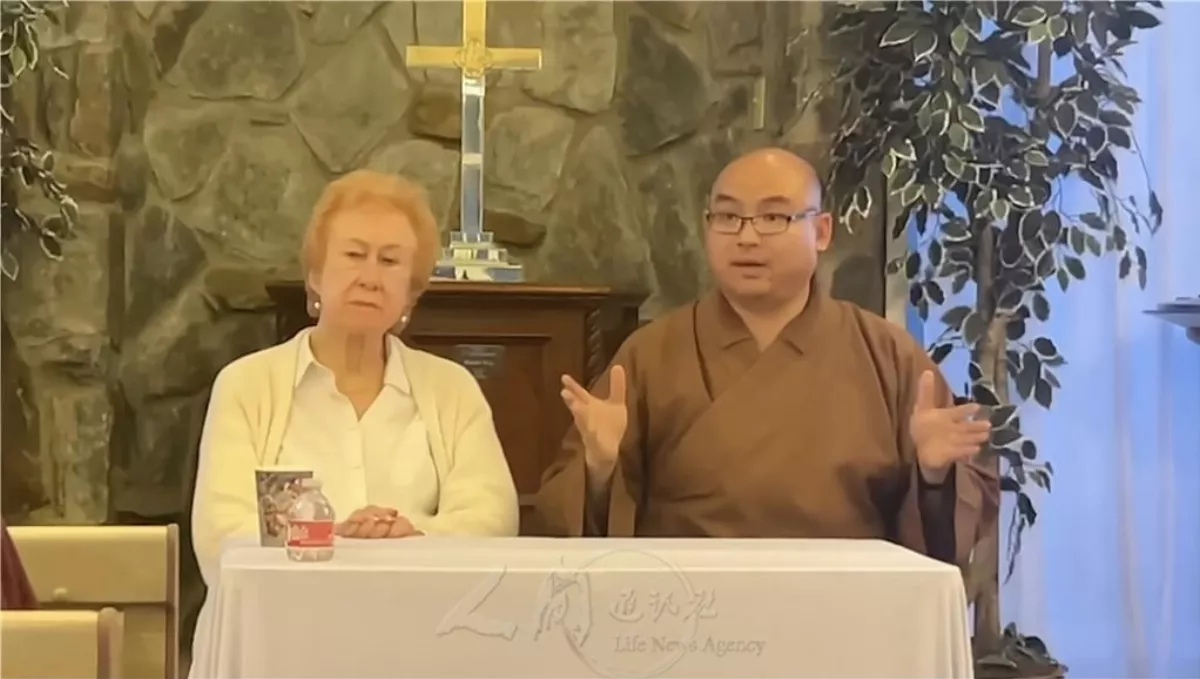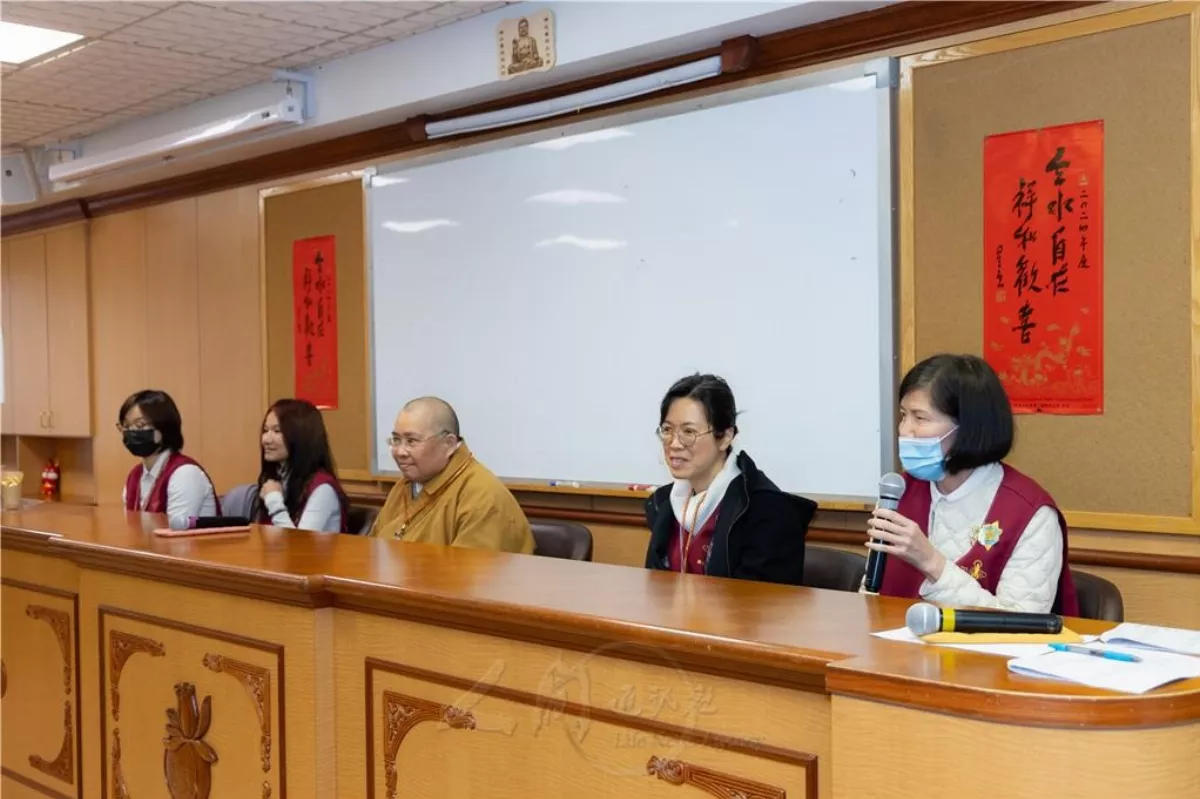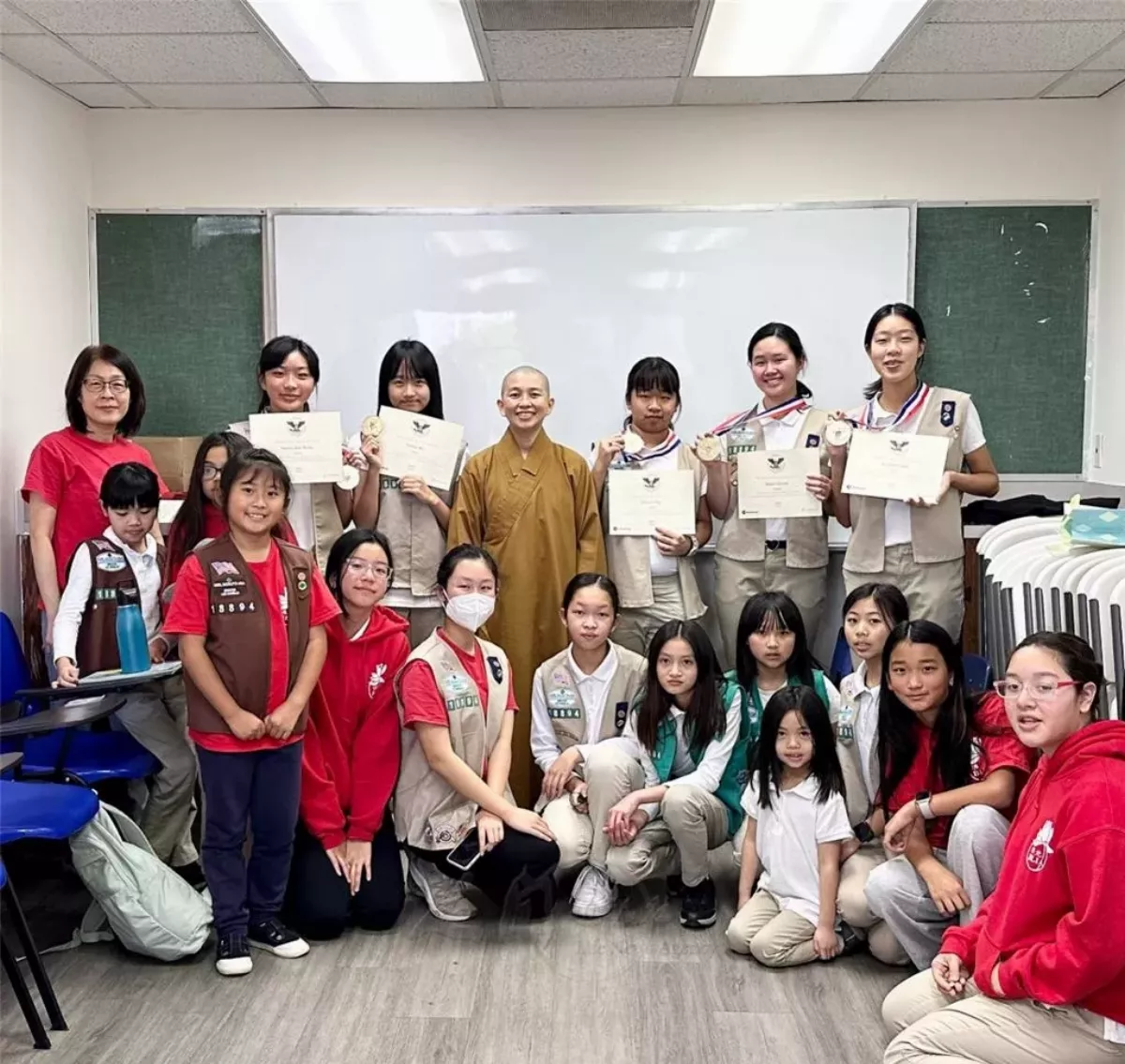《人間福報》是一份多元化的報紙,強調內容溫馨、健康、益智、環保,不八卦、不加料、不阿諛,希冀藉由優質的內涵,體貼大眾身心靈的需要,是一份承擔社會責任的報紙。
Christian Lenten Series: Hsi Lai Temple Invited to Share Buddhist Vegetarian Culture


Fo Guang Shan Hsi Lai Temple
April 9, 2024
The Arcadia Congregational Church invited Ven. Hui Ze from Hsi Lai Temple to attend the Christian Lenten Series talk on the evening of March 20, 2024, delivering a talk titled "Buddhist Vegetarian Culture." The Christian Lenten Series lectures are interfaith talks live-streamed on Facebook by the Arcadia Congregational Church. This event, held during the Lenten period, invites representatives from various religions to share their dietary cultures and traditions. Groups invited include Christianity, Catholicism, Judaism, Islam, Hinduism, and Buddhism.
Before the lecture began, Ven. Hui Ze shared some vegetarian bentos prepared by Hsi Lai Temple with the attendees. Everyone complimented that it was the best vegetarian dish they had ever enjoyed, and never realized that vegetarian food could be so "flavorful." Subsequently, Rev. Jolene Cadenbach of the Arcadia Congregational Church invited Ven. Hui Ze to introduce Buddhist vegetarian culture to the attendees.
Ve. Hui Ze explained that Buddhists practice vegetarianism to cultivate compassion, as they cannot bear to see the suffering of sentient beings and thus abstain from consuming their flesh. However, he also emphasized the flexibility of Buddhist vegetarianism, stating that it's not about rigid rules but about cultivating a 'pure heart.' Venerable Master Hsing Yun, the founder of Fo Guang Shan, once said, "Vegetarianism is a way of life, and the essence of being vegetarian lies not in eating vegetables or meat but in possessing a 'pure heart'—a heart that is pure and compassionate." Therefore, those interested in Buddhism need not feel constrained in adapting to vegetarianism; eating purely vegetarian meals when conditions are right is also acceptable.
From the perspective of history, Ven. Hui Ze mentioned that during the Buddha’s time, monastics lived by begging for alms and had to accept food equally from all, without discrimination. In modern Theravada Buddhism, monastics still practice alms-round and can eat vegetarian and non-vegetarian food. In Mahayana Buddhism, influenced by the spirit of the Bodhisattva path and the agricultural Chan culture advocated by Chan Master Bai Zhang, vegetarianism has become a common practice in Chinese Buddhism. With the trend of "veganism" prevailing in various countries in Europe and America, young people in the West adopt vegetarianism to adhere to the moral principle of non-harming and for personal physical and mental health reasons.
When asked about the dining rituals and how food is prepared in Buddhist monastic communities, Ven. Hui Ze shared in details. In large monasteries of Mahayana Buddhism, like Fo Guang Shan Monastery, meals are prepared by the temple's venerables and volunteers for the assemblies. He described a unique dining method in Buddhism, the Formal Buddhist Meal, which approaches dining with gratitude, reflection, and appreciation for the food.
After the forum, Ven. Hui Ze extended a warm invitation to all attendees to visit Hsi Lai Temple in the future and personally experience the delicious vegetarian meals served in the temple's dining hall. Attendees expressed gratitude for participating in this interfaith lecture series, which deepened their understanding and appreciation of Buddhism.
- 支持福報,做別人生命中的貴人 -
前往支持Triple Gem Refuge Ceremony in Ottawa New Life is born at Easter
下一篇文章Professor Zimei Deng's Lecture in Toronto Explores Humanistic Buddhism











